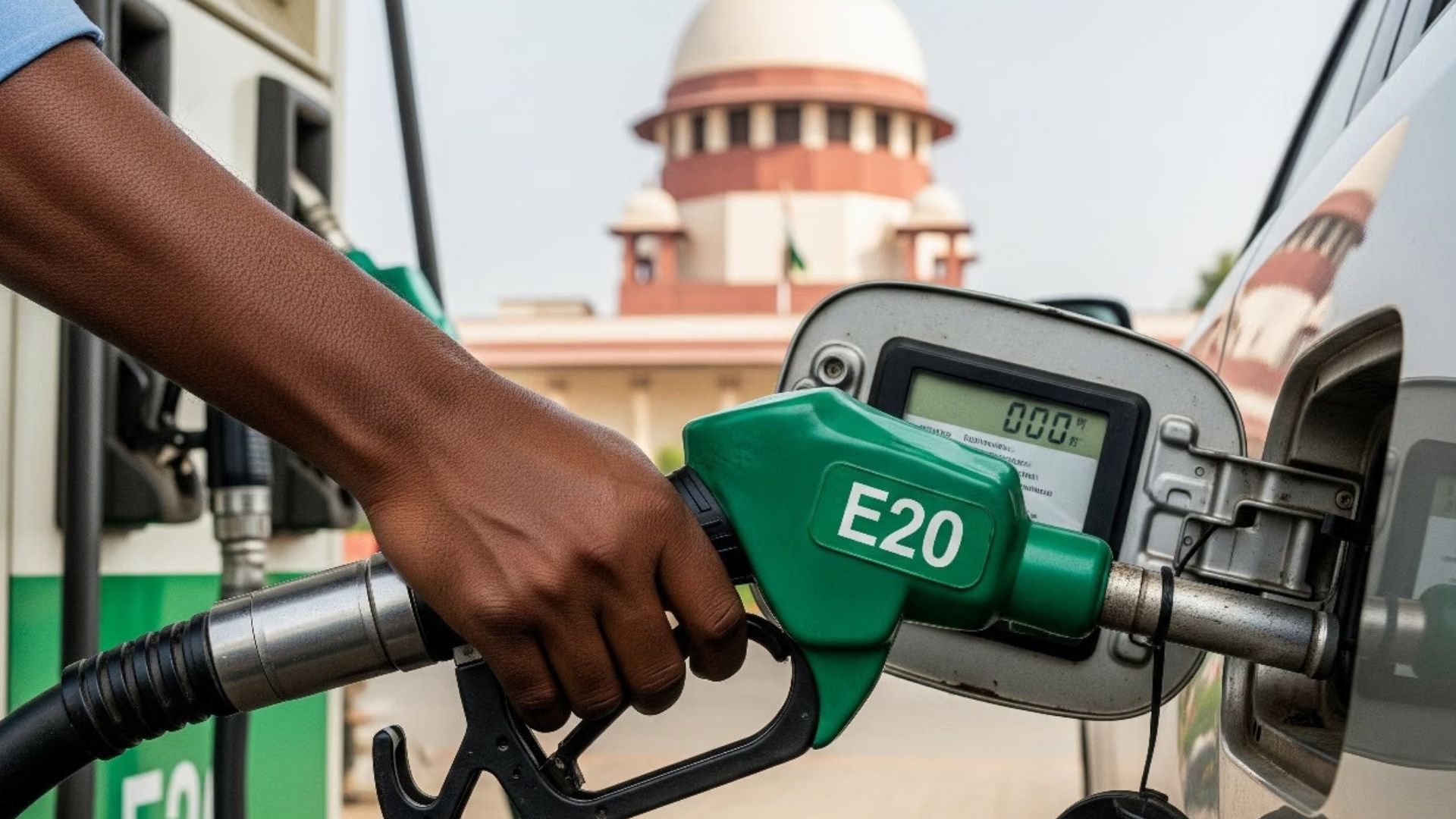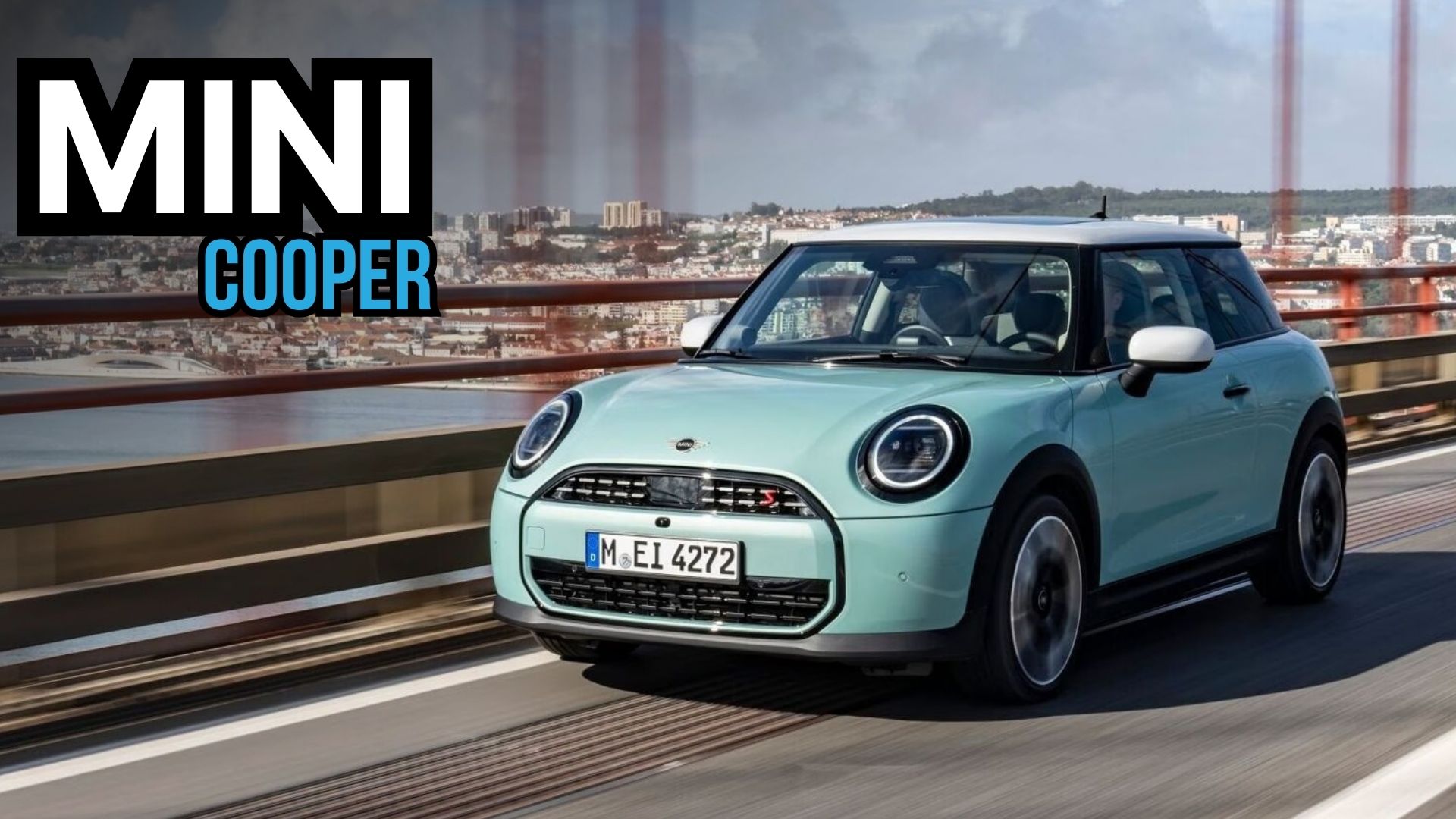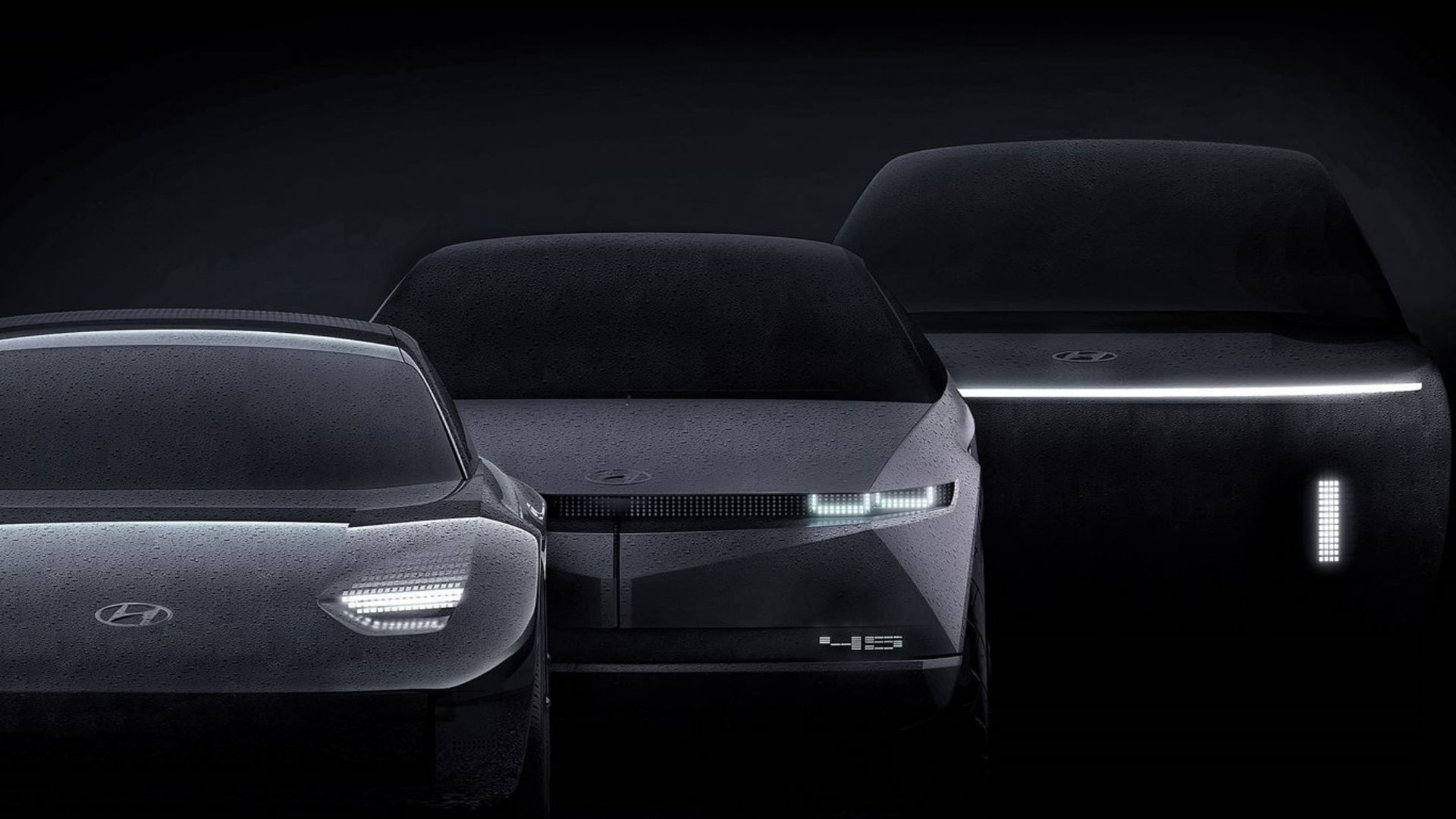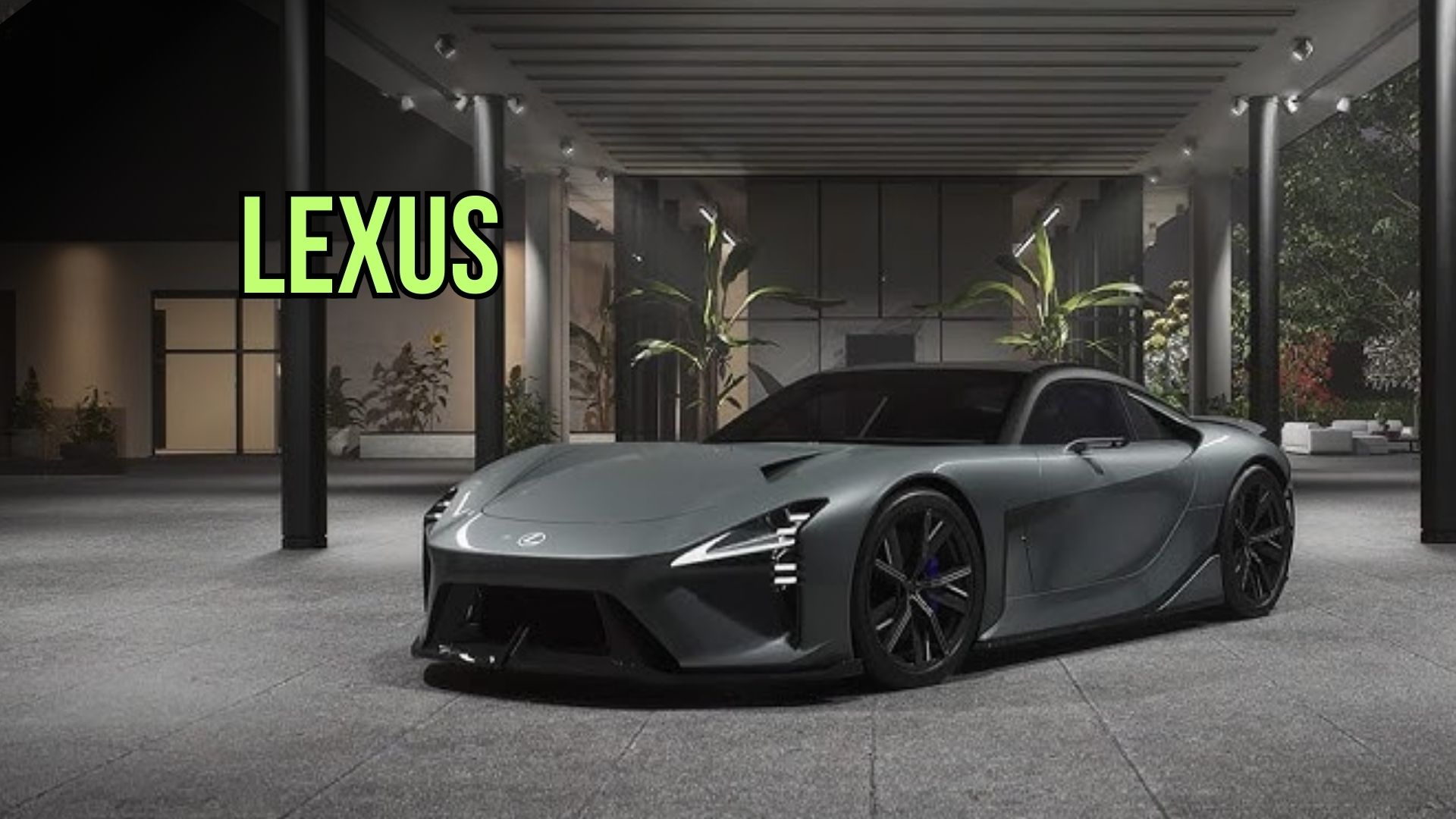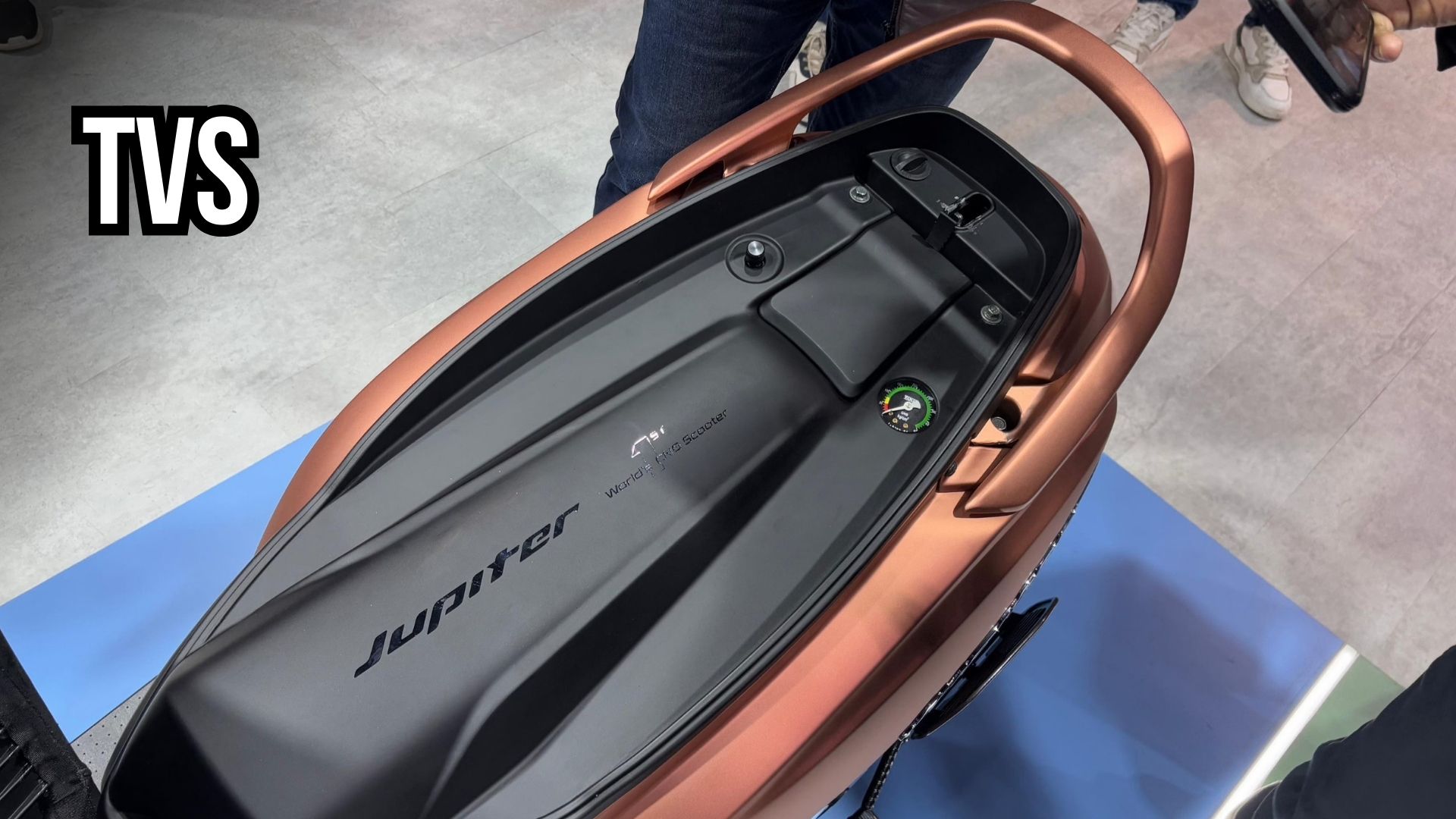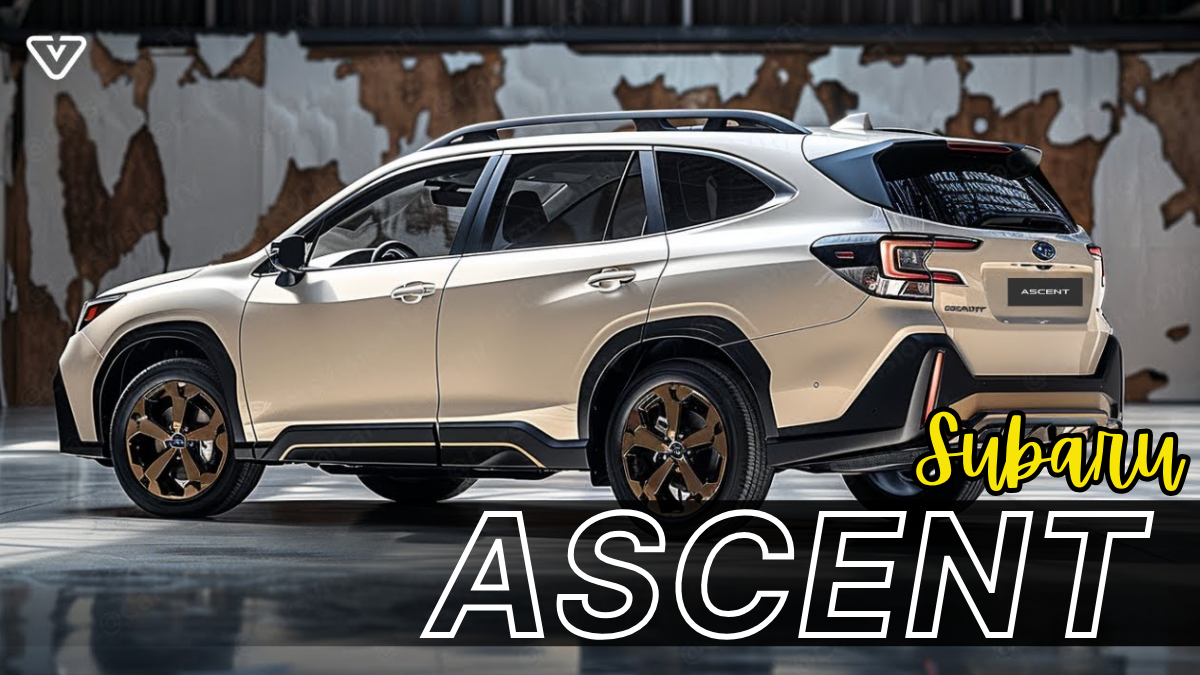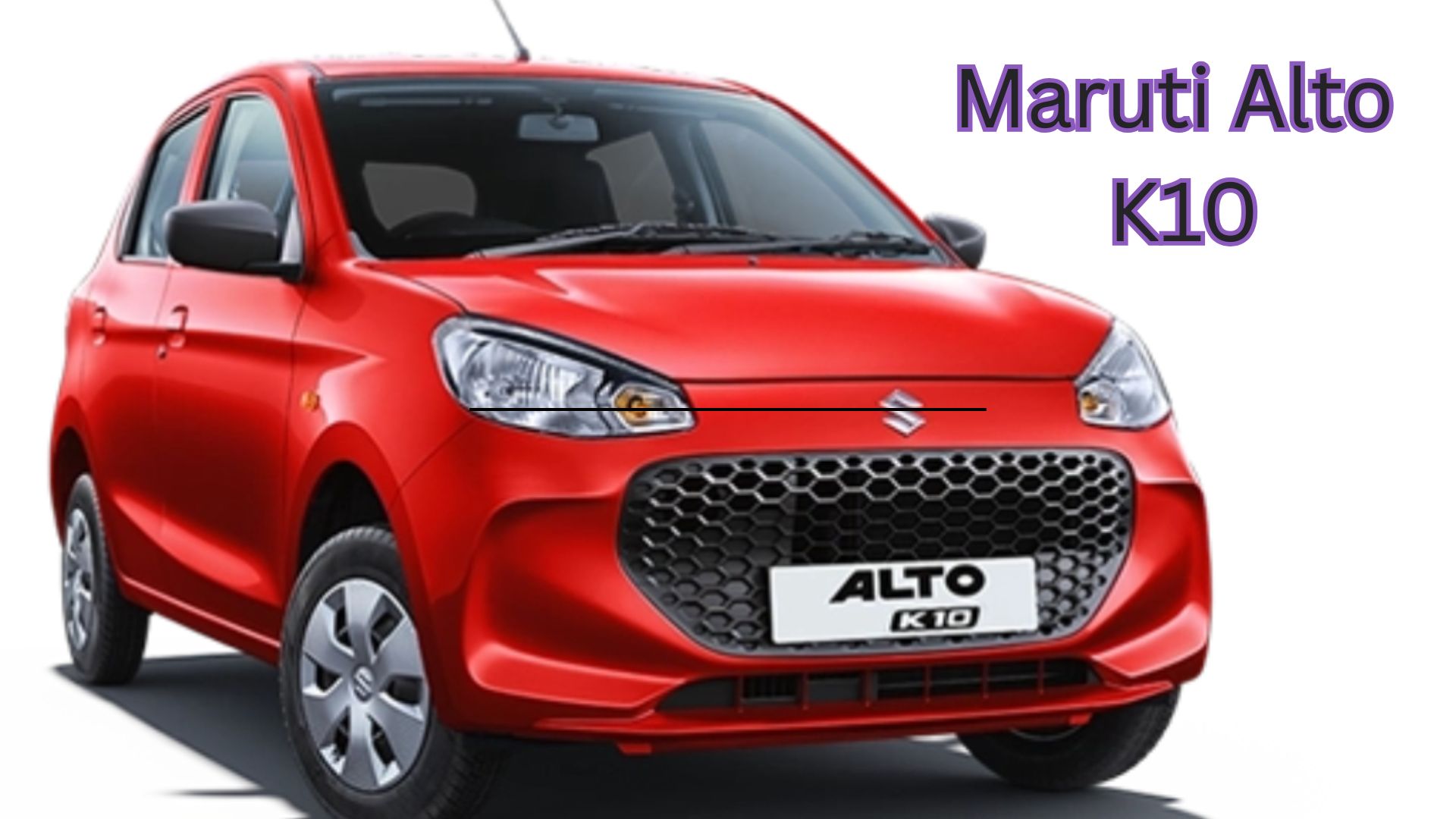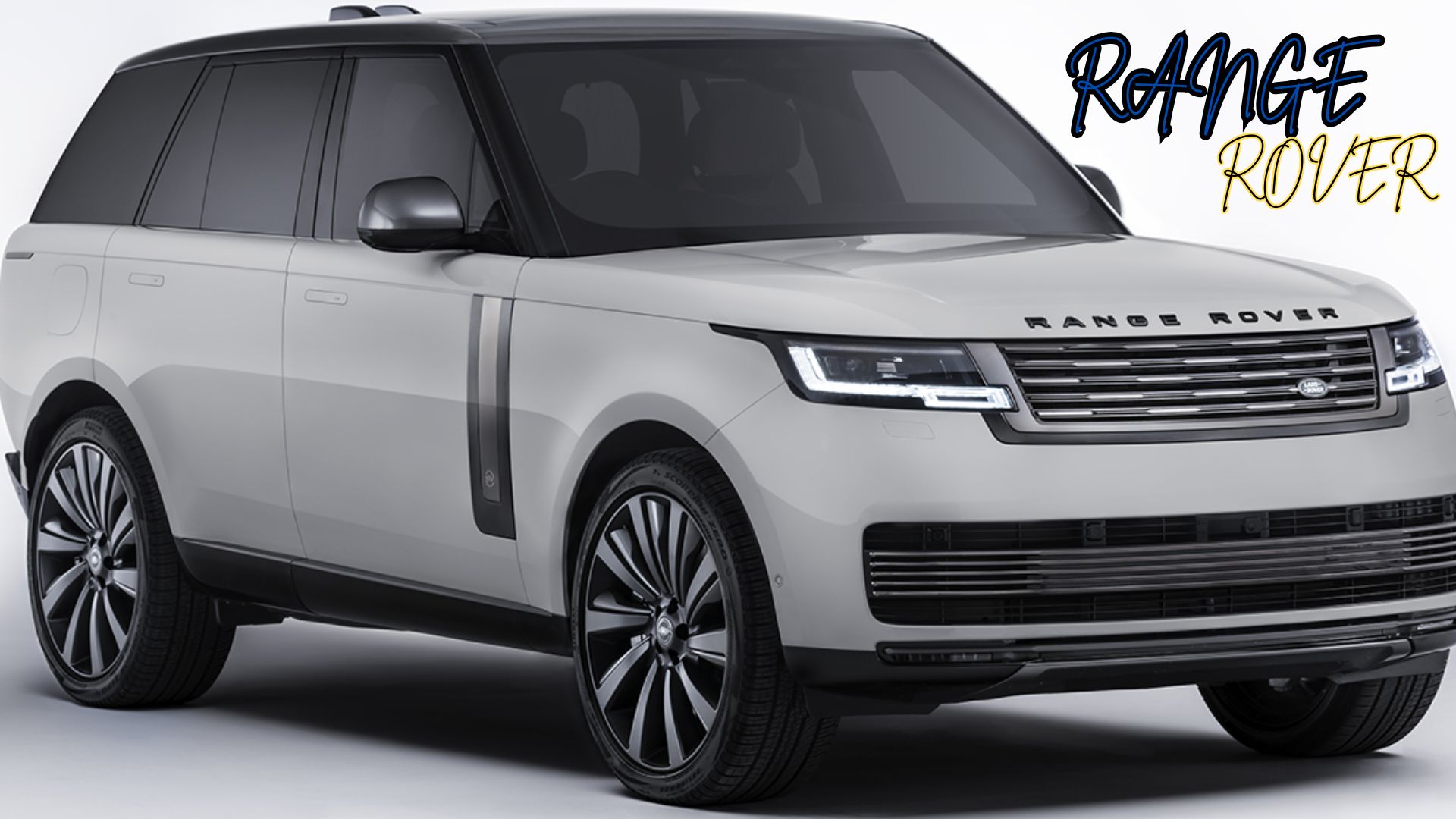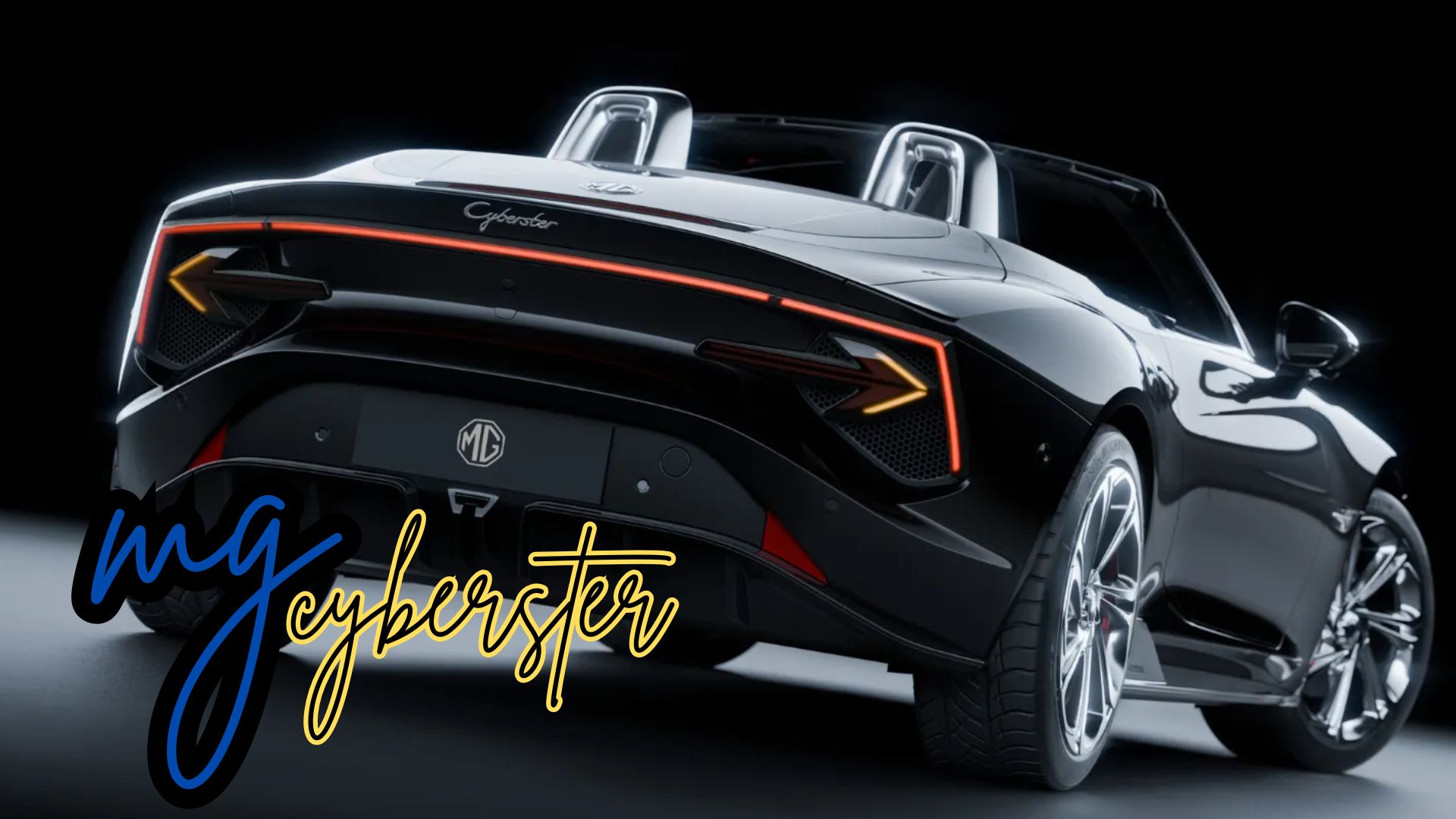India’s transition to E20 fuel, a petrol blend containing 20% ethanol, has been at the center of national debate. With the government mandating E20 availability across most fuel stations, consumers and industry observers have raised questions about its effect on vehicle performance, warranties, and consumer choice. Recently, the Supreme Court of India addressed these concerns by dismissing a Public Interest Litigation (PIL) that challenged the government’s policy.
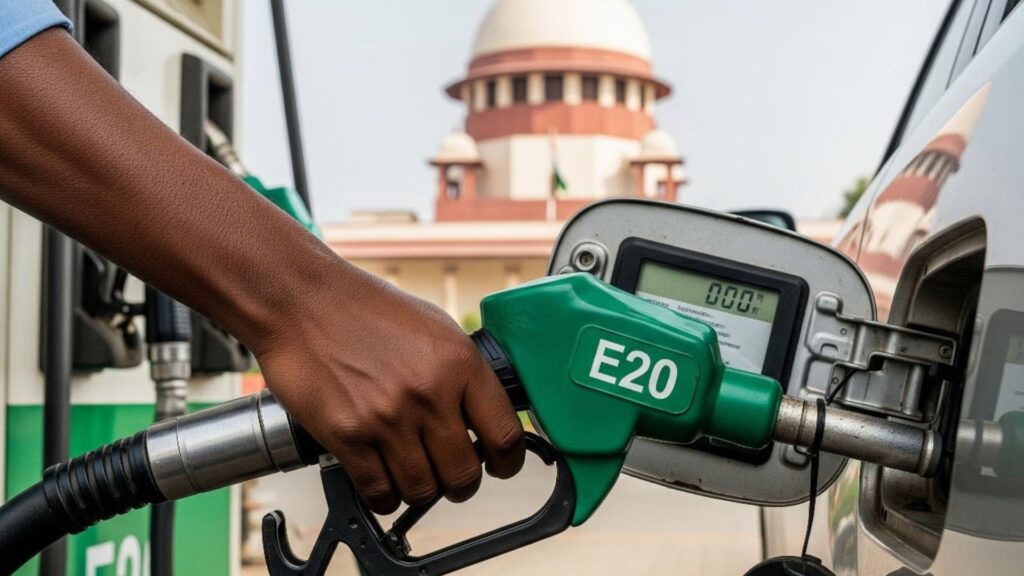
This ruling, along with clarifications from automobile manufacturers, oil marketing companies, and testing agencies, has shaped the direction of India’s fuel strategy. Below is an in-depth look at the issue, industry assurances, and the implications for motorists.
Why the Shift to E20?
The E20 policy is part of India’s Ethanol Blended Petrol (EBP) Programme, which aims to reduce reliance on imported crude oil, support sugarcane farmers, and cut greenhouse gas emissions. Ethanol, derived primarily from sugarcane and grains, serves as a renewable fuel component that lowers carbon intensity.
By mid-2025, nearly all 90,000 fuel pumps across the country had phased out E5 and E10 fuel options, making E20 the standard blend.
Summary Table
Aspect |
Details |
|---|---|
Court Ruling |
Supreme Court dismissed PIL against E20 rollout on 1 September 2025. |
Mileage Impact |
Drop of 2-4% under tests, maximum around 6%. |
Warranty |
Automakers confirm E20 usage will not void warranties or insurance claims. |
Benefits |
Reduced emissions, lower oil imports, income boost for farmers, progress toward clean fuel. |
Availability |
E20 is now the default petrol blend at most Indian fuel stations. |
Official Source |
Consumer Concerns Over E20
While the environmental and economic logic is clear, consumers have raised several concerns:
-
Compatibility: Many owners of older vehicles worried that higher ethanol content might damage engines and fuel systems.
-
Mileage: Social media discussions claimed that drivers were losing up to 8% or more in fuel efficiency.
-
Warranty: Vehicle owners were unsure if using E20, despite manuals recommending E5 or E10, would void warranties.
-
Choice: The PIL argued that motorists should be given the option of ethanol-free petrol.
Industry and Government Response
Ahead of the court hearing, representatives from the automotive sector, oil companies, and research bodies such as the Automotive Research Association of India (ARAI) addressed the concerns in a joint press conference.
Key Assurances:
-
Fuel Efficiency
-
Controlled tests confirm that the transition from E10 to E20 results in only a 2-4% drop in mileage, with a maximum limit of 6% due to ethanol’s lower energy content compared to petrol.
-
Real-world conditions such as terrain, traffic, and driving style may influence results, but widespread claims of steep efficiency loss are not supported by data.
-
-
Vehicle Safety
-
There have been no reports of engine failures or fuel system damage caused by E20 in the millions of vehicles already running on it.
-
-
Warranty Protection
-
Automakers confirmed that warranties will remain valid, even for vehicles whose manuals only mention E5 or E10 fuel. Insurance claims will also not be affected by E20 usage.
-
-
Economic and Environmental Gains
-
E20 supports India’s energy independence by reducing crude oil imports.
-
Farmers benefit from increased ethanol demand, boosting rural incomes.
-
Carbon emissions are lowered, aligning with India’s climate commitments.
-
Supreme Court Verdict on E20 Fuel
On September 1, 2025, a bench led by Chief Justice B.R. Gavai and Justice K. Vinod Chandran dismissed a PIL that challenged the E20 policy.
The petitioner had argued that:
-
Older vehicles could suffer engine damage.
-
The NITI Aayog’s 2021 report highlighted efficiency losses.
-
Consumers deserved an ethanol-free petrol option.
The Supreme Court rejected these claims, siding with the government’s position that the E20 programme was a strategic and environmentally necessary policy. The court emphasized that consumer preference could not dictate national energy choices, particularly when the programme benefits both the environment and farmers.
What This Means for Motorists
-
E20 is here to stay: With the Supreme Court’s decision, the rollout continues across the country.
-
Warranties protected: Drivers need not worry about invalidating manufacturer warranties.
-
Minimal efficiency loss: Consumers can expect a small but manageable dip in mileage, typically within 2-6%.
-
Future direction: India is preparing for wider adoption of flex-fuel vehicles, which can handle higher ethanol blends.
Frequently Asked Questions
Q1. Will using E20 damage my vehicle if the manual specifies E5 or E10?
A1. No. Both automakers and government agencies confirm that E20 is safe for existing vehicles.
Q2. Will my car’s warranty be void if I use E20 fuel?
A2. No. Warranties remain valid, and insurers will also cover vehicles running on E20.
Q3. How much mileage loss can I expect with E20?
A3. Controlled tests show only a 2-4% reduction, capped at around 6%. Real-world figures may vary slightly.
Q4. Why did the Supreme Court dismiss the petition against E20?
A4. The court ruled that the policy serves national interest by supporting farmers, reducing imports, and meeting climate goals.
Q5. What’s next after E20?
A5. Automakers are working on flex-fuel vehicles capable of handling blends above 20%, aligning with upcoming energy and emission policies.
For More Information Click HERE
